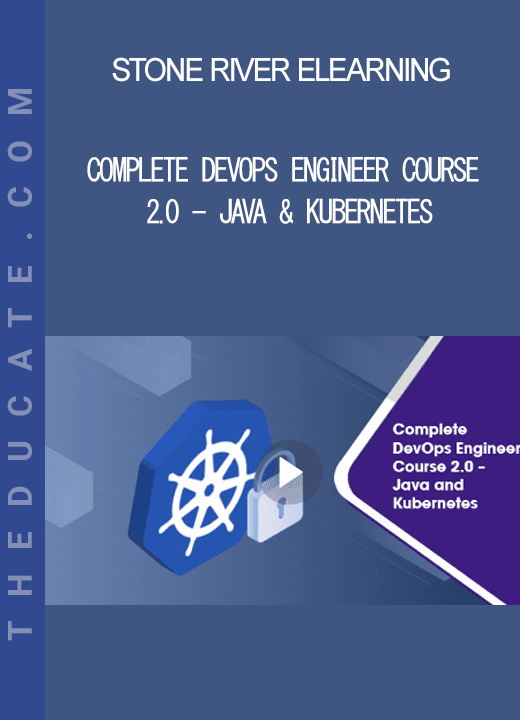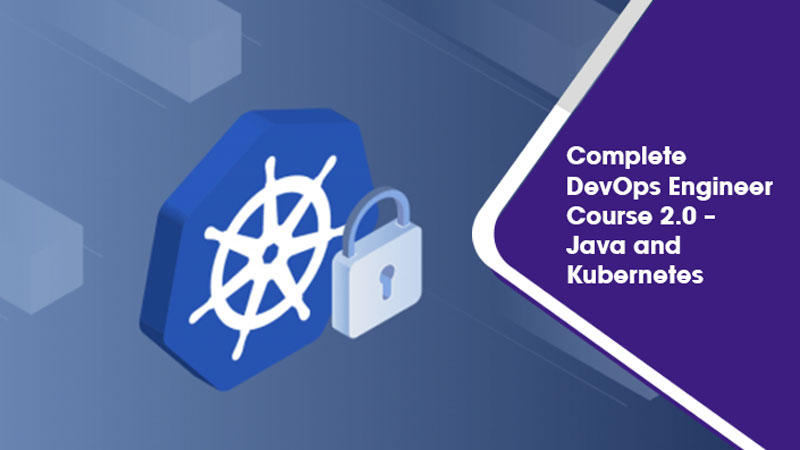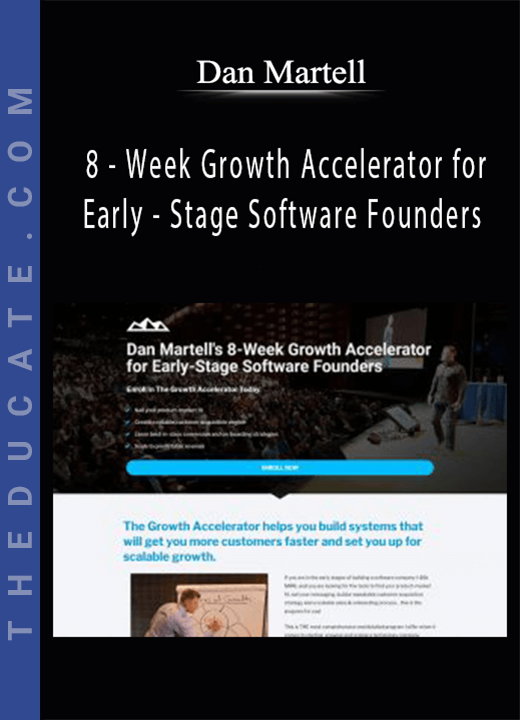Description
Stone River Elearning – Complete DevOps Engineer Course 2.0 – Java & Kubernetes
Learn how to program in Java and build scalable web applications using Kubernetes with Google Cloud platform. DevOps pro
In this introductory course, you’ll learn and practice essential computer science concepts using the Java programming language. You’ll learn about Object Oriented Programming, a technique that allows you to use code written by other programmers in your own programs. You’ll put your new Java programming skills to the test by solving real-world problems faced by software engineers.
Java programming is a great option for first-time coders due to its popularity and ease of use. This course will provide you with a solid foundation in computer science and Object Oriented Programming concepts, as well as set you on the path for success as a software engineer.
This complete course is also designed to teach you about managing application containers, using Kubernetes. Kubernetes (k8s) is an open source platform for automating container operations such as deployment, scheduling and scalability across a cluster of nodes. We’ve built this course with our Team ClayDesk of industry recognized developers and consultants to bring you the best of everything!
Mastering highly resilient and scalable infrastructure management is very important, because the modern expectation is that your favorite sites will be up 24/7, and that they will roll out new features frequently and without disruption of the service. Achieving this requires tools that allow you to ensure speed of development, infrastructure stability and ability to scale.
We have designed the course especially for beginners and intermediate level students -no matter where you are in your web site development and coding journey—It is for sure that the future belongs to web developers who know how to code real world responsive websites built on Bootstrap framework.
What you’ll learn
- Become proficient working with Java
- Understand basic concepts of Object Oriented Programming (OOP)
- Learn about Methods, Classes, Objects, Constructors and other important concepts
- Create Java applications
- Understand the Cloud Google Platform
- Work with building Web Applications images using Docker
- Understand the Kubernetes Architecture
- Setting up a Virtual Machine using Oracle VM
- Create Clusters
- Hand-on Real World Projects using WordPress and PHP Guestbook
- Configure Back-end and Front-end functionality
- Learn how to scale Web Applications using Google Container Engine with Kubernetes
- Learn how 12-factor apps and the microservices design pattern make modern applications easier to deploy and maintain
- Use Docker to build container images that package an application and its dependencies for deployment on a single machine
Are there any course requirements or prerequisites?
- You need to have fast internet connection
- You would also need a credit card for signing up with FREE Google trial cloud platform
- You also must be tech savvy and ready to make an effort in becoming a cloud developer
Who this course is for:
- This course is for beginners as well as Intermediate and Advanced users
- If you know Java or any other programming language – that’s great but nor required though
- If you know any programming language, then you can work with Building Scaleable Applications Section of the course
Course Curriculum
- Introduction to the DevOps Course (6:22)
- World of Microservices (4:54)
- World of MicroServices
- Google Cloud & Kubernetes Course Structure (7:04)
- What is DevOps (8:43)
- DevOps Engineer and Developer Salaries (4:33)
- Introduction to HTML and CSS (8:51)
- Downloading Atom Editor (2:52)
- Finding Proper Code Editor (3:57)
- Downloading Emmet (2:33)
- Creating Your First Web Page (7:03)
- Lists Concepts (7:03)
- Parent Child Relationship (4:18)
- Heading Tag (5:09)
- Inspect Element Tool (10:19)
- Using Anchor Tags (8:31)
- Using Blockquotes (2:02)
- Organizing Files (2:48)
- First CSS Stylesheet (3:39)
- Inserting Images On Webpage (7:39)
- How to Use Div Tags (5:12)
- Ids and Classes (4:13)
- Coding What We Have Learnt (8:59)
- Introduction (10:06)
- Java History – Simple Reading
- How Java Works (3:08)
- Java Structure – Reading
- Installing Important Software (6:41)
- Difference Between Java Run Time Environment (JRE) / Java Development Kit (JDK)
- Java Fundamental Concepts (8:38)
- Your First Java Program (6:14)
- Quiz 1: Your First Java Program
- Using Variables (5:47)
- Quiz 2: Using Variables
- Strings and Working with Text (7:13)
- Strings Exercise
- The While Loop (5:39)
- For Loop (6:30)
- Loop – Exercise
- IF Statement (7:18)
- IF Else Exercise
- Getting User Input (6:12)
- Quiz 3: Getting user input
- DO WHILE Statements (7:24)
- Do While Statements – Excercise
- Java Switch (9:53)
- switch_statement_in_java.pdf
- What is an Array (6:19)
- Quiz 4: What is An Array?
- Array of Strings (7:05)
- Quiz 5: Array of Strings
- Multi-dimensional Arrays (5:19)
- Multi-Dimensional Arrays
- Classes and Objects (7:08)
- Difference Between Objects and Classes
- Methods (10:46)
- Quiz 6: Methods
- Getters and Return Values (6:45)
- Quiz 7: Getters and Return Values
- Method Parameters (10:38)
- Difference Between Parameters and Arguments
- Setters and This (11:32)
- Quiz 8: Setters and This
- Constructors (12:38)
- Quiz 9: Constructors
- Static and Final (15:55)
- Quiz 10: Static and Final
- String Builder and Formatting (11:56)
- Quiz 11: String Builder and formatting
- ToString Method (14:01)
- ToString Method
- Java Packages (12:00)
- Quiz 12: Java Package
- Inheritance (12:49)
- Quiz 13: Inheritance
- Java Interfaces (12:45)
- Quiz 14: Java Interfaces
- Public Private Protected (18:20)
- Quiz 15: Public, Private, Protected
- Encapsulation (17:37)
- Quiz 16: Encapsulation
- Polymorphism (17:52)
- Quiz 17: Polymorphism
- Casting Numerical Values (14:44)
- Quiz 18: Casting Numerical Values
- Using Generics (18:03)
- Upcasting and Downcasting (13:16)
- Generics and Wildcards (16:05)
- Project B – Practice (7:46)
- Half Way (0:38)
- Project A – Practice (19:07)
- Java Course Conclusion (3:24)
- The Agenda (9:00)
- Evolution of Applications (9:13)
- Quiz 19: Evolution of Applications
- Creating a Free Google Account (5:30)
- Introduction to Google Cloud Console (10:07)
- Quiz 20: Introduction to Google Cloud Console
- What is a Container (12:26)
- Quiz 21: What are Containers?
- Installing Oracle Virtual Box (5:06)
- What is Docker (9:19)
- Quiz 22: What is Docker?
- Installing Docker (7:37)
- Working with Docker Hub (5:17)
- Quiz 23: Working with Docker Hub
- What is Kubernetes (7:54)
- What is Kubernetes?
- What is Google Cloud Shell (7:35)
- Google Container Engine (7:50)
- Deep Dive into Architecture (13:24)
- Running Images with Docker (3:24)
- Installing Apps with Native OS Tools (11:40)
- Pulling Images from DockerHUb (6:15)
- Creating Own Docker Images (13:23)
- Kubernetes Revisited (8:24)
- Creating a New Project (6:24)
- Creating a Cluster (10:28)
- Kubernetes User Interface – Talking to Clusters (8:00)
- Deploying App to Cluster (7:59)
- Push Container Images to Registry (6:19)
- Creating Cluster Guestbook (13:46)
- Deploying Redis Master Guestbook (9:51)
- Deploying Redis Master Service Guestbook (3:44)
- Deploying Redis Slave Controller Guestbook (7:13)
- Deploying Redis Slave Service Guestbook (4:36)
- Deploying Front End Guestbook (4:32)
- Deploying External IP – Guestbook (13:06)
- Guestbook Project Cleanup (9:18)
- Project Summary (4:52)
- Kubernetes Conclusion (4:22)
- Running Java on Compute Engine
- Downloading XAMPP Server (6:40)
- Installing XAMPP Server (8:38)
- Configuring XAMPP Server (12:56)
- Create a FREE Web Hosting Account (4:06)
- Downloading Eclipse Editor (3:51)
- Downloading ATOM Editor (2:52)
- Downloading Brackets Editor (3:57)
- Emmet Package for Brackets (2:33)
- Continuous Delivery in Kubernetes – By Google
- WP1-Microservices Resiliency
- WP2-Microservices Why Should Businesses Care
- What is DevOps Best Practice (9:06)
Sale Page: https://stoneriverelearning.com/p/complete-devops-engineer-course-2-0-java-kubernetes
Archive: https://archive.ph/wip/EhMRL







Reviews
There are no reviews yet.